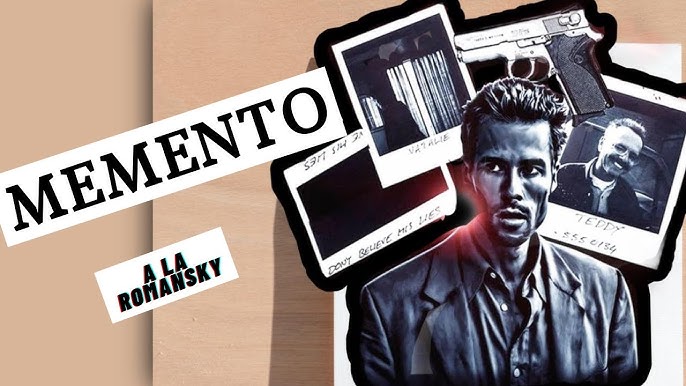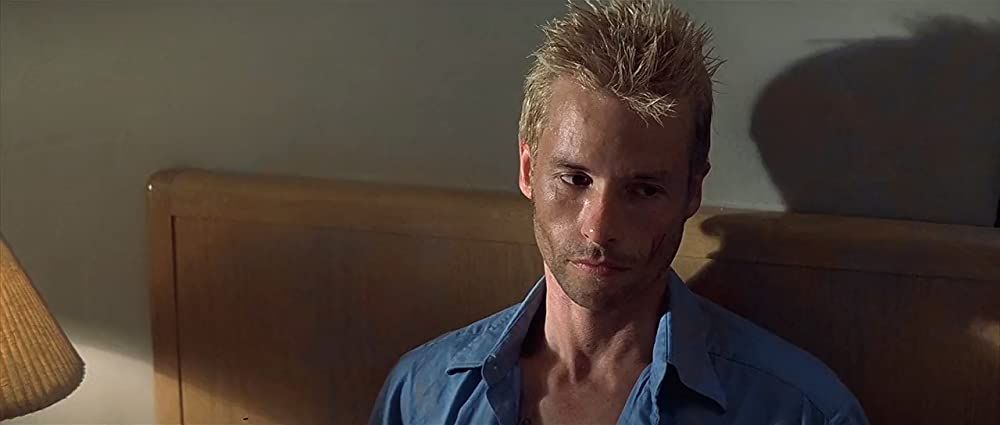🎬 Memento (2000)

🎬 Memento (2000): A Gripping Puzzle of Memory and Identity
Memento, directed by Christopher Nolan, is a psychological thriller that redefines the narrative structure of cinema. The film follows Leonard Shelby (Guy Pearce), a man suffering from short-term memory loss after a traumatic incident that resulted in his wife’s murder. Determined to seek vengeance, Leonard uses a unique system of notes, photographs, and tattoos to track information about the people and events he encounters, as he cannot form new memories.

The story is intricately woven in reverse chronological order, placing viewers in Leonard’s disorienting world where every moment is a fleeting experience. As the narrative unfolds backward, we witness Leonard’s desperate quest for the truth while simultaneously exploring themes of memory, identity, and the nature of reality. The audience becomes engaged in a psychological game, piecing together clues and trying to decipher what is real and what is merely a construct of Leonard’s fragmented mind.
The film’s striking cinematography and haunting score amplify the sense of confusion and urgency, drawing viewers deeper into Leonard’s psyche. Nolan expertly crafts tension and suspense, leading to a shocking conclusion that challenges our understanding of memory and trust. With standout performances from Guy Pearce, Carrie-Anne Moss, and Joe Pantoliano, Memento is not just a story of revenge; it is a profound meditation on how our memories shape our identities and the lengths one will go to find closure.

Memento has garnered critical acclaim for its innovative storytelling and remains a landmark in modern cinema, prompting discussions about the reliability of memory and the complexity of human experience. It’s a film that demands attention and rewards viewers with a thought-provoking experience that lingers long after the credits roll. 🧩🔍












